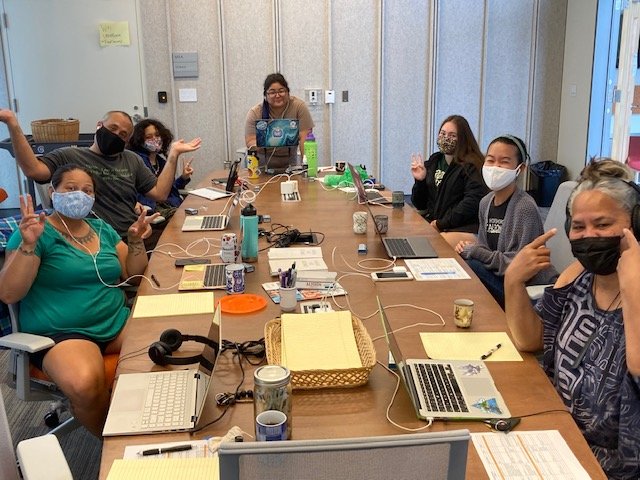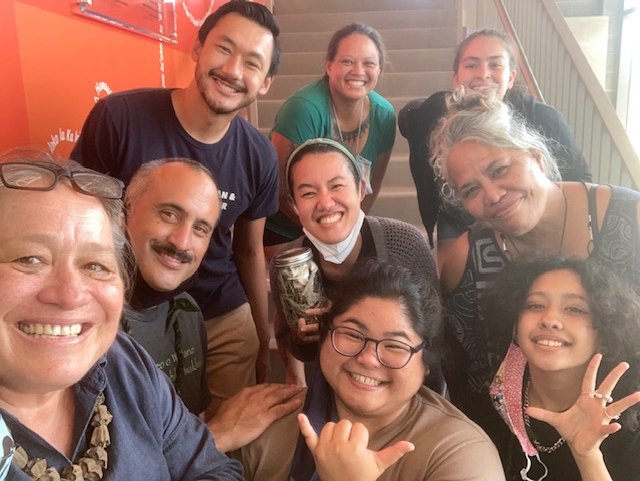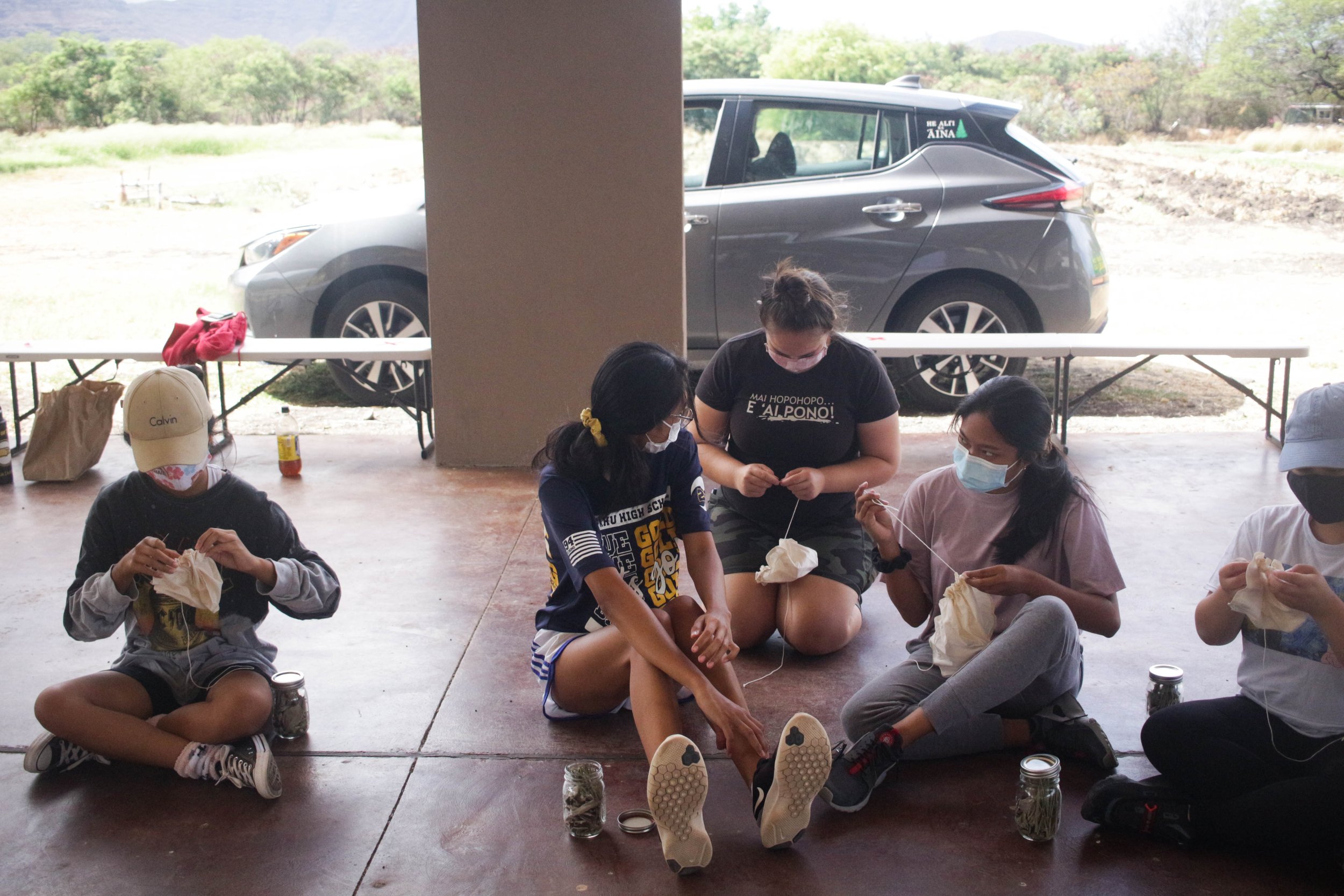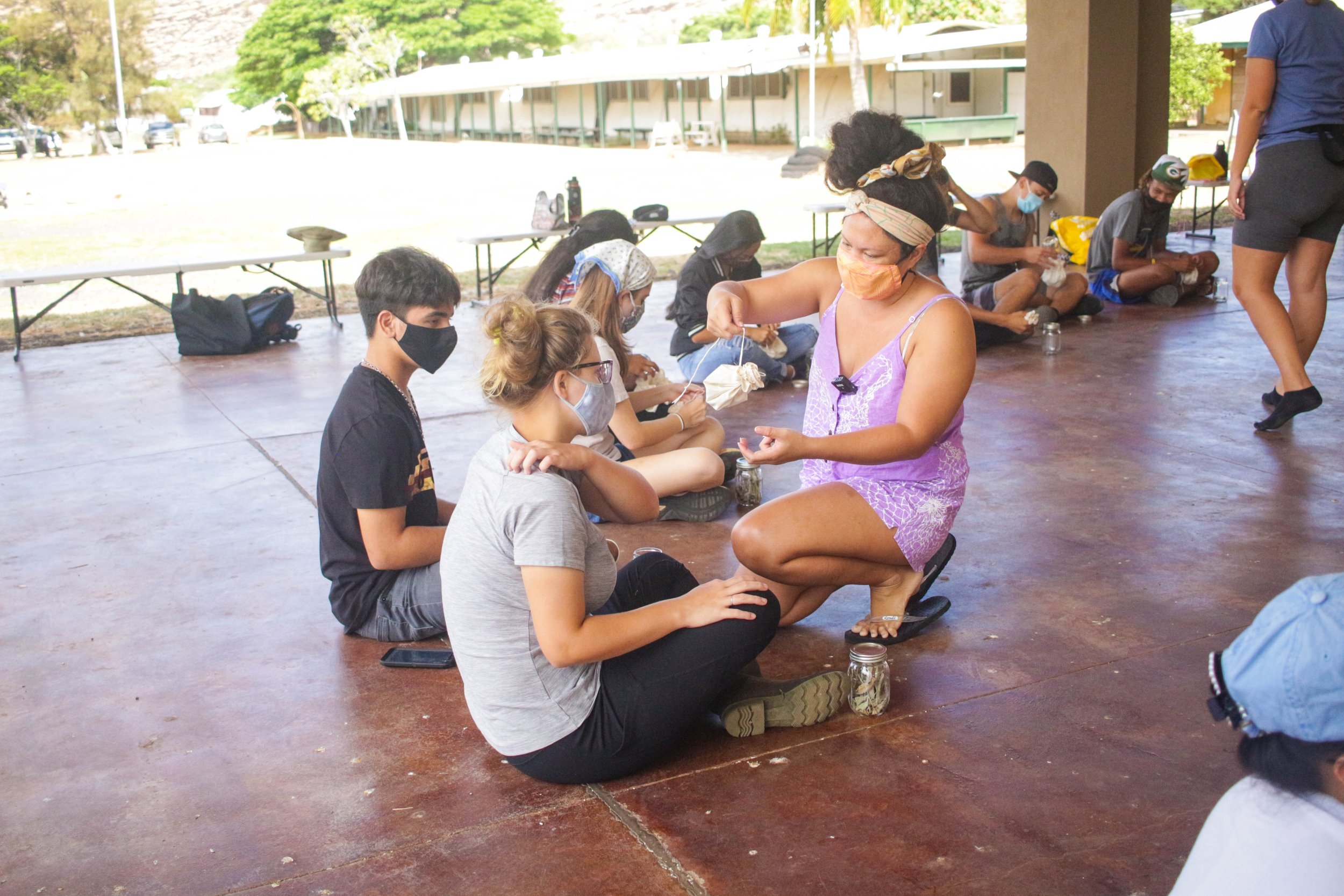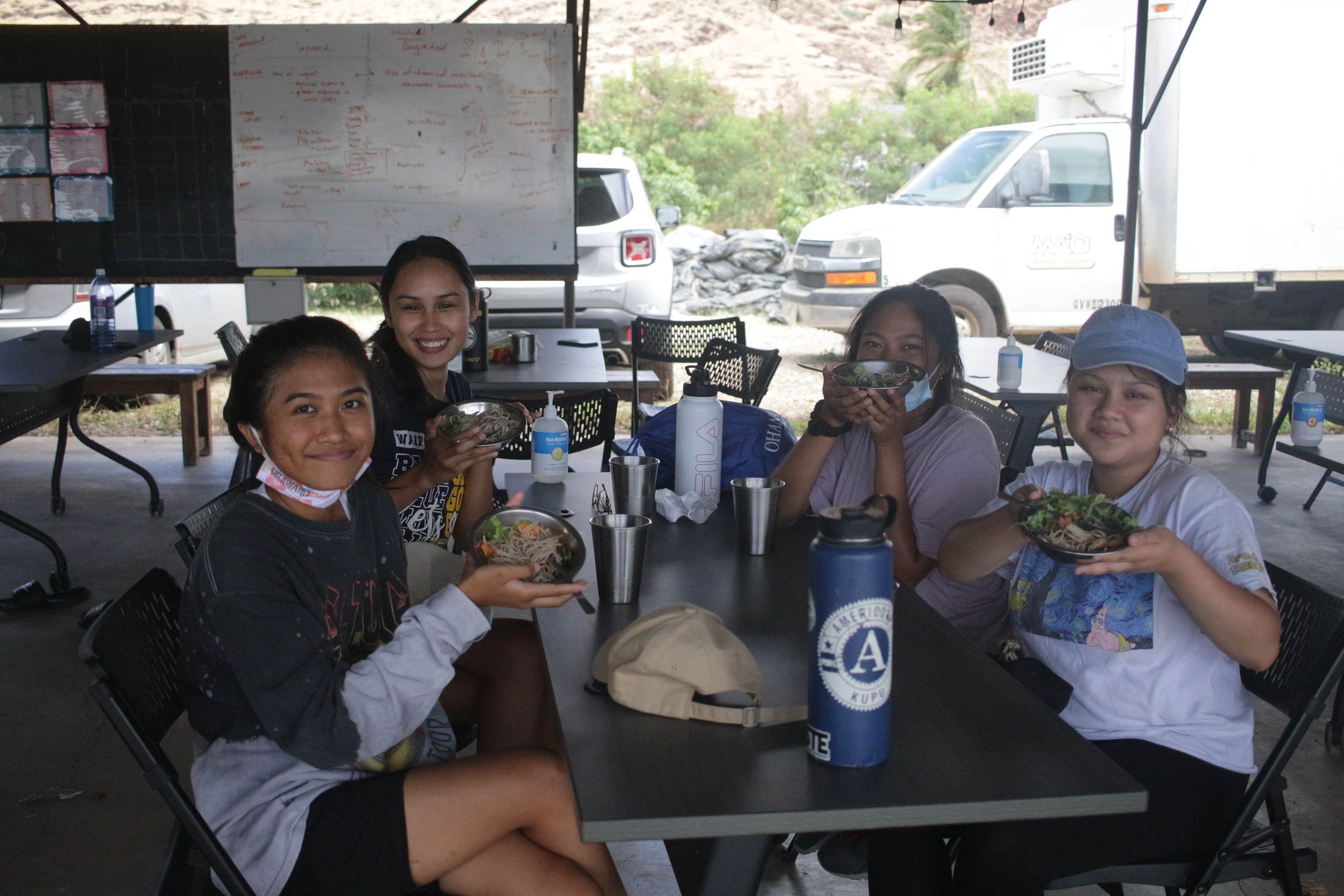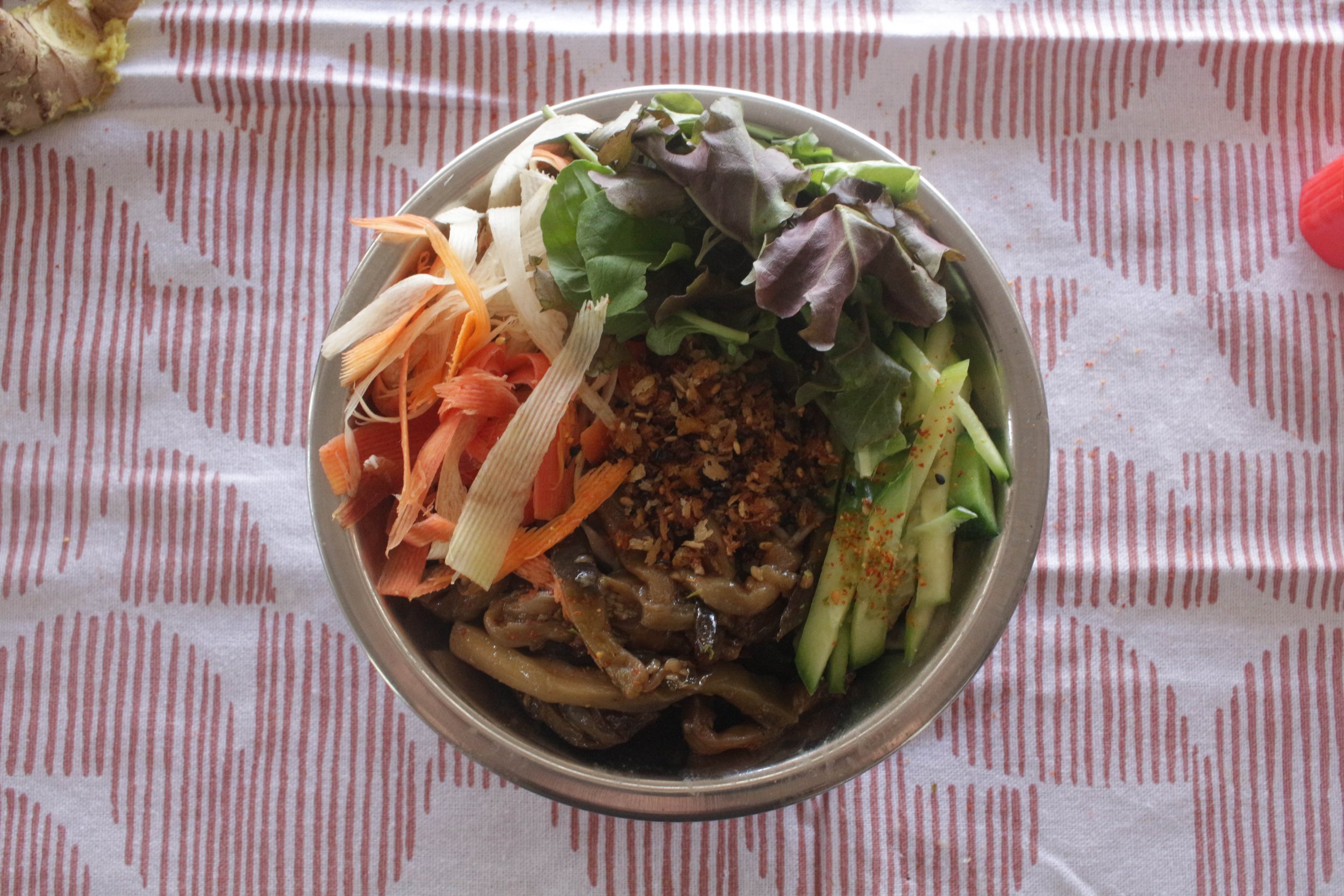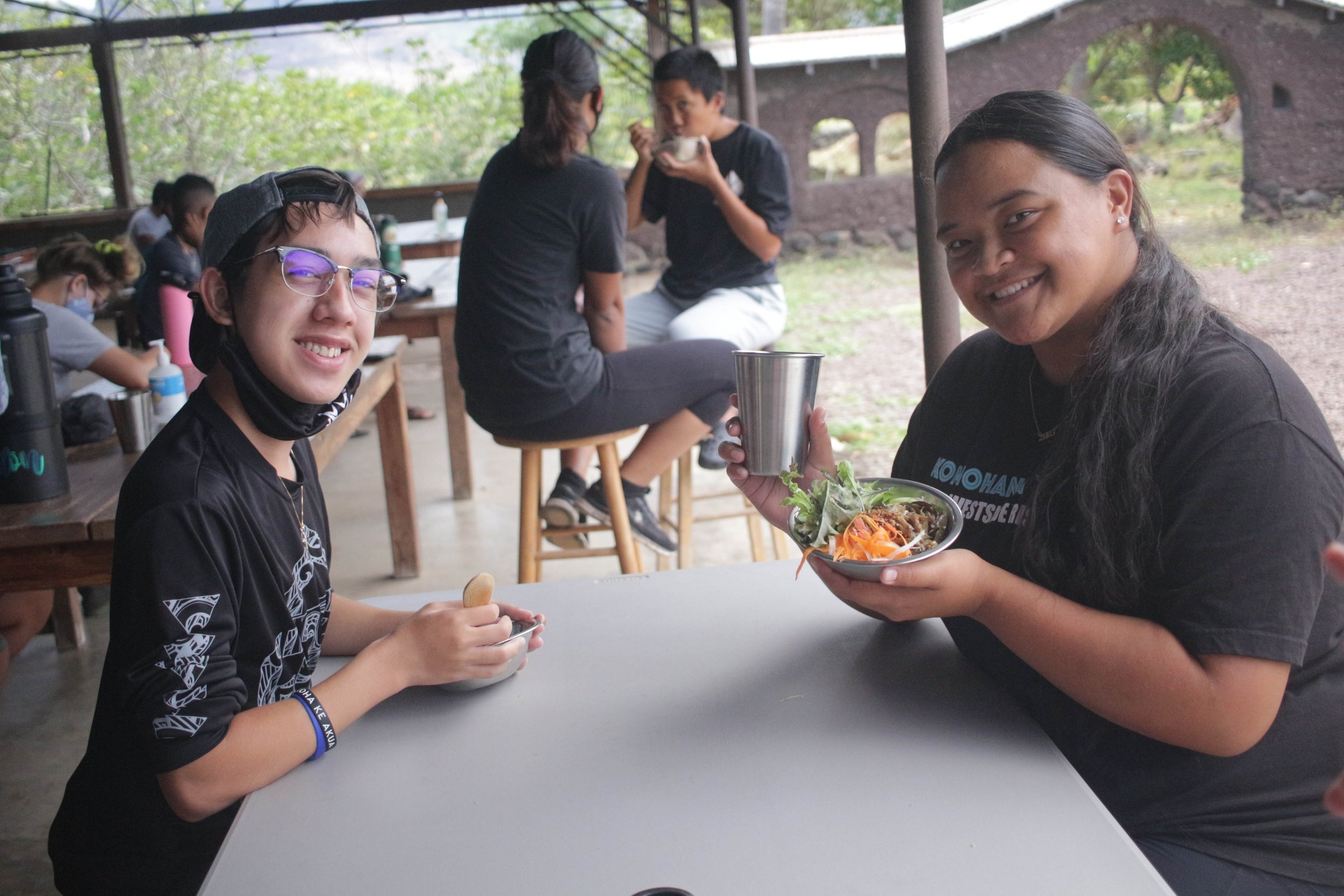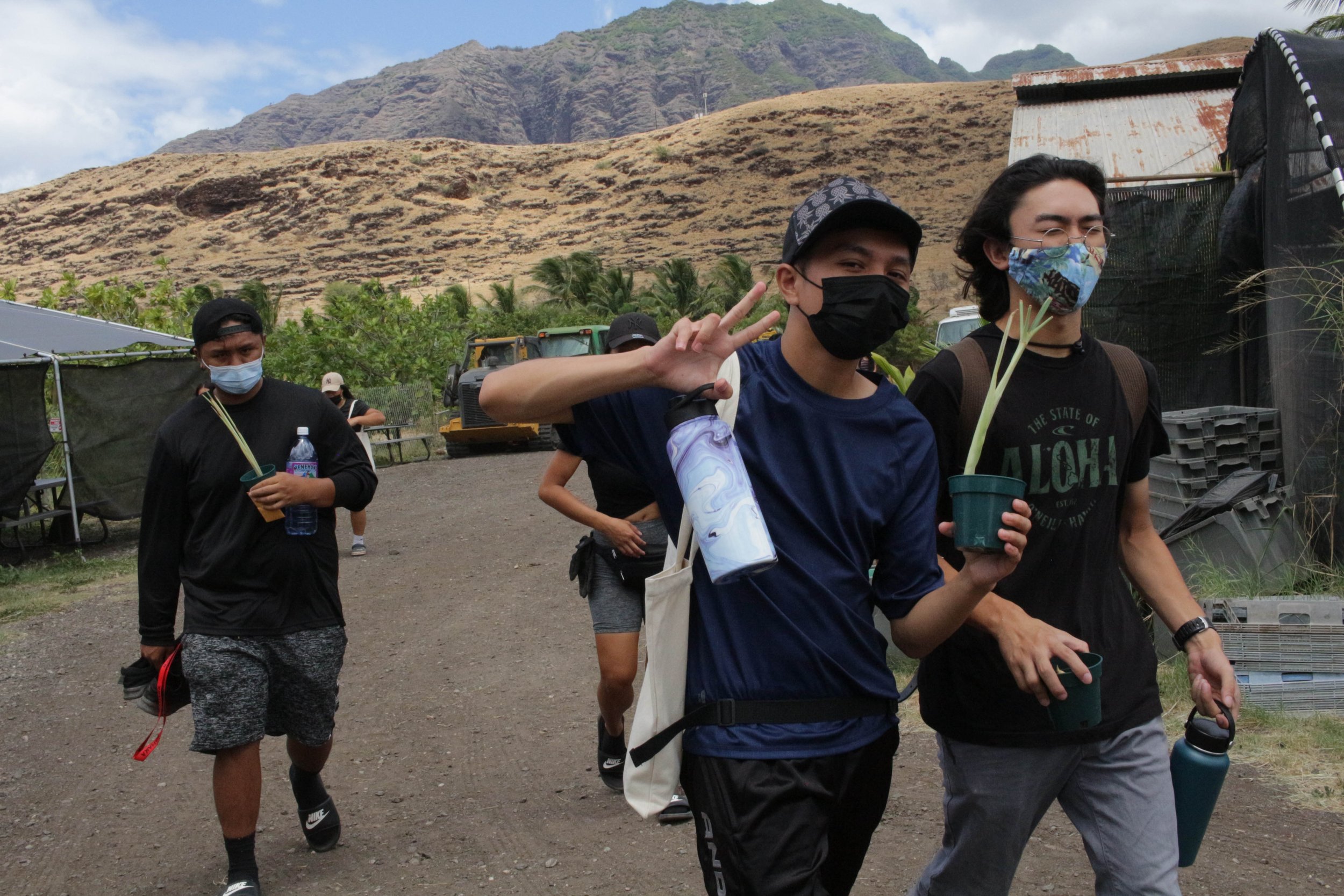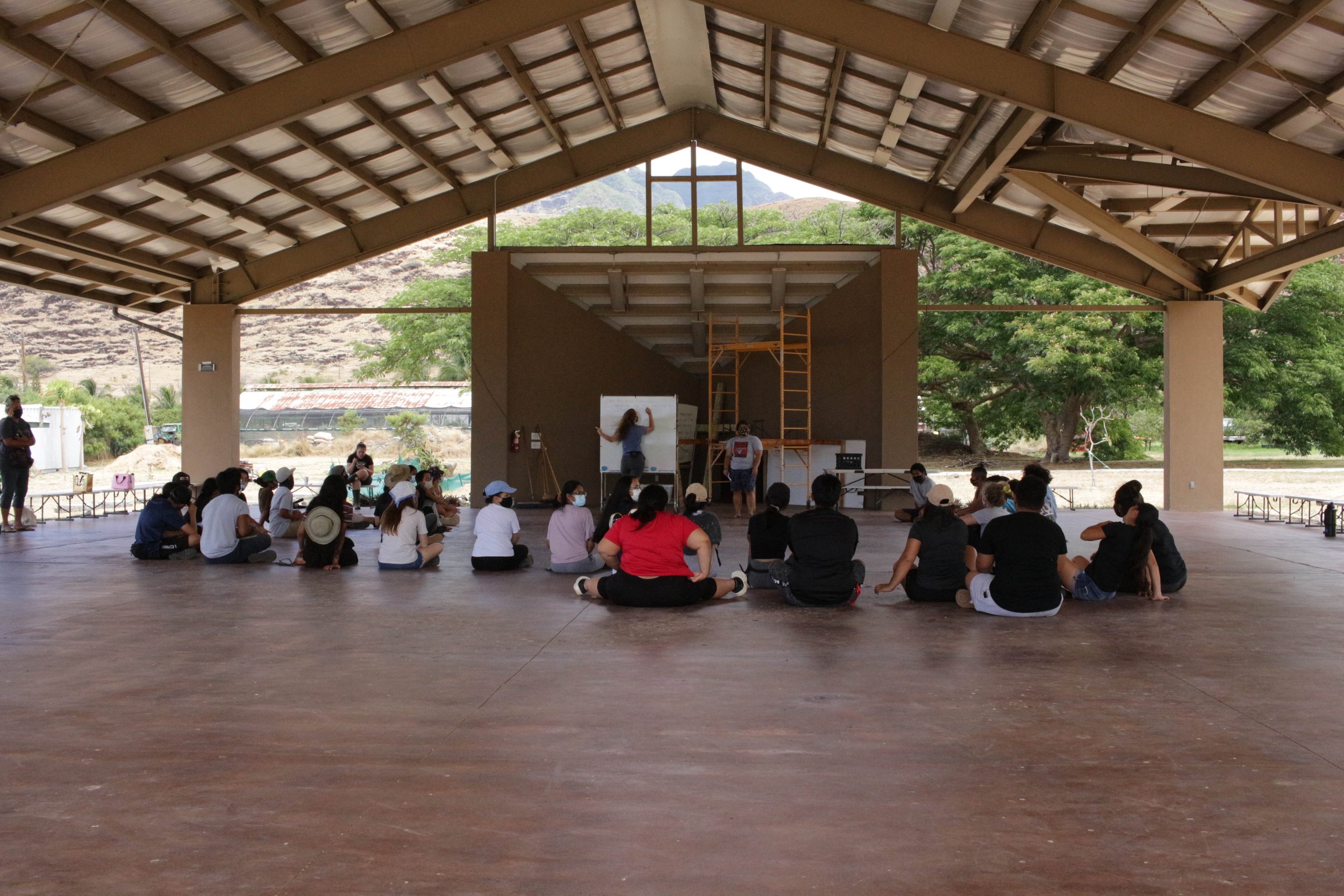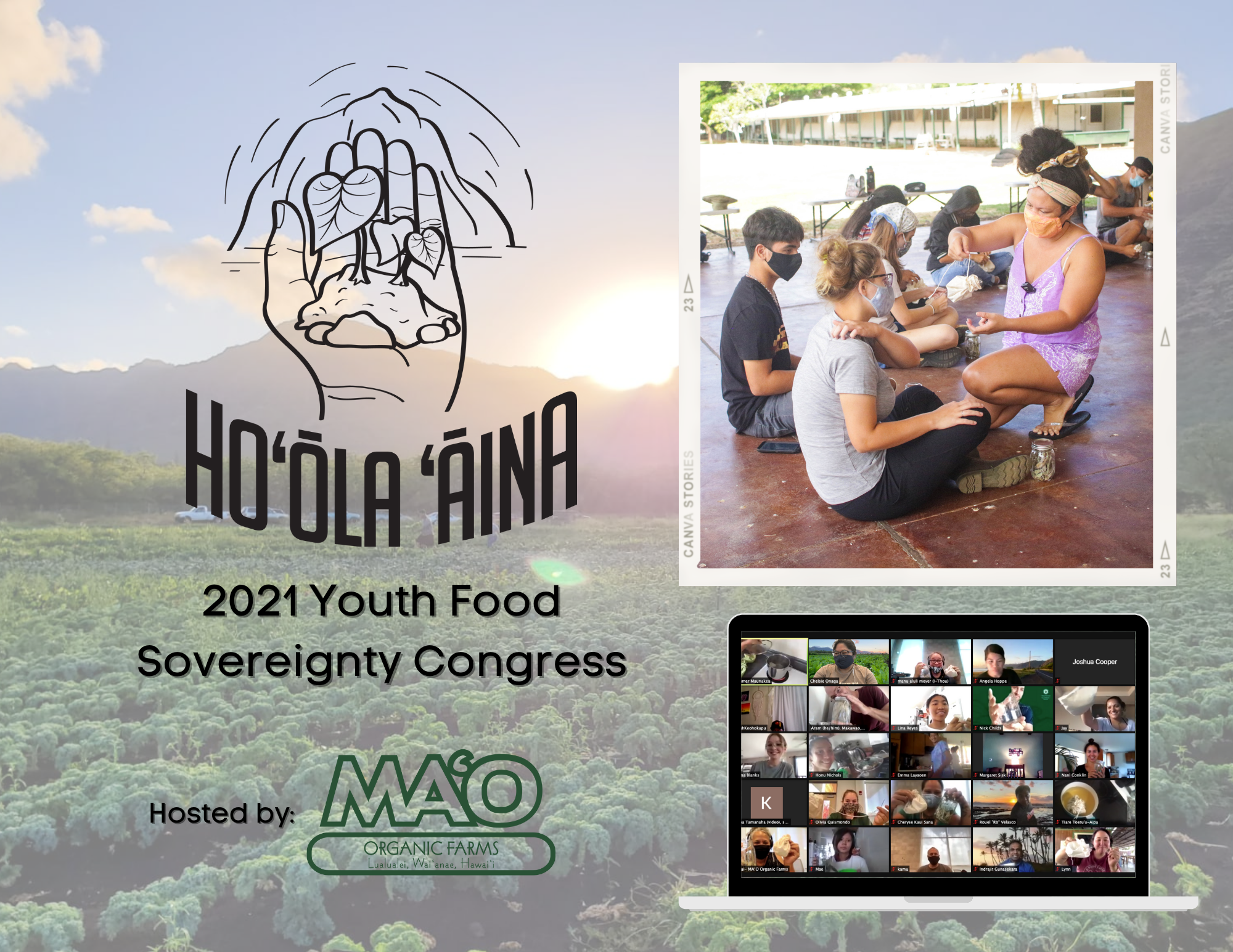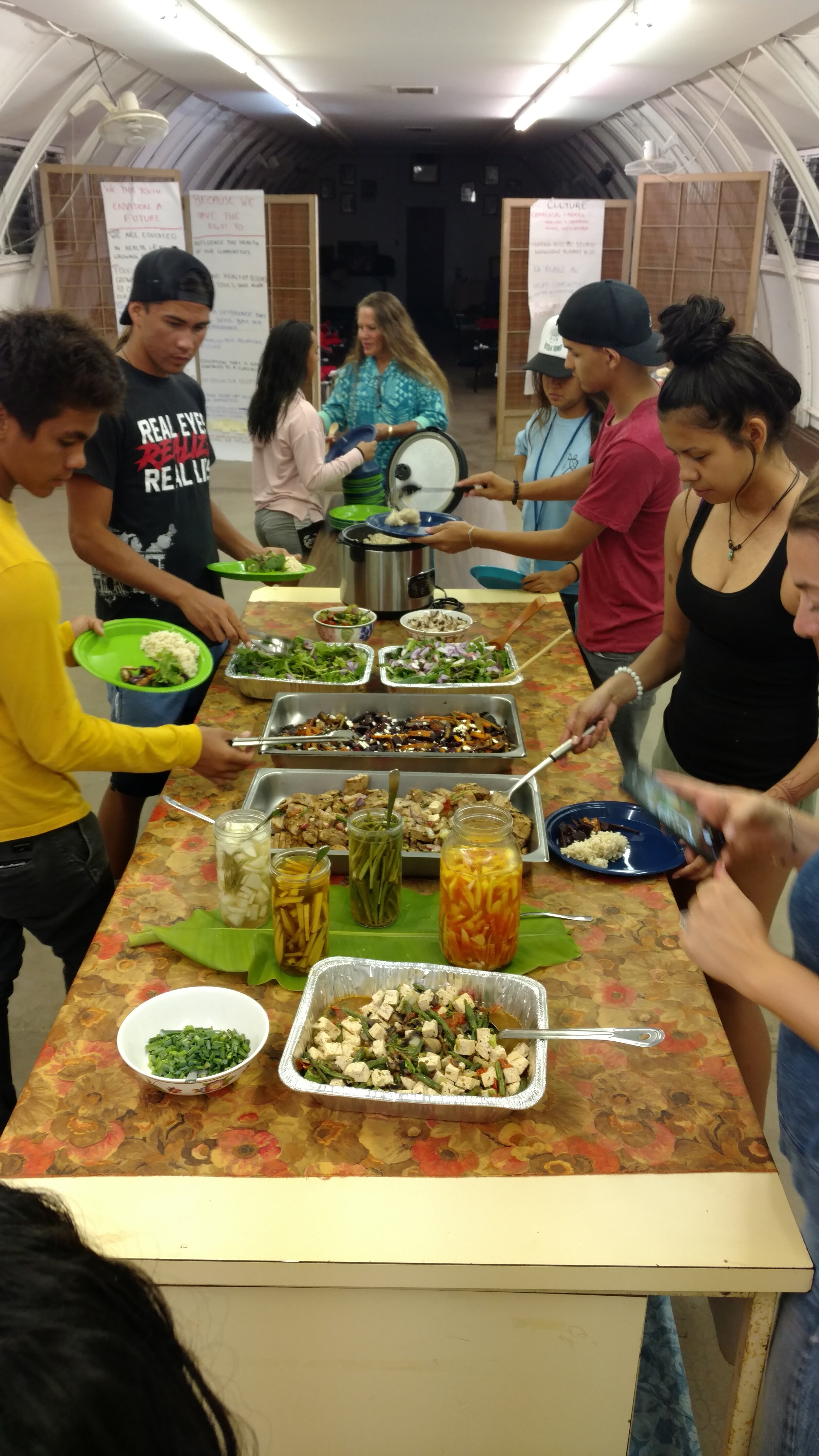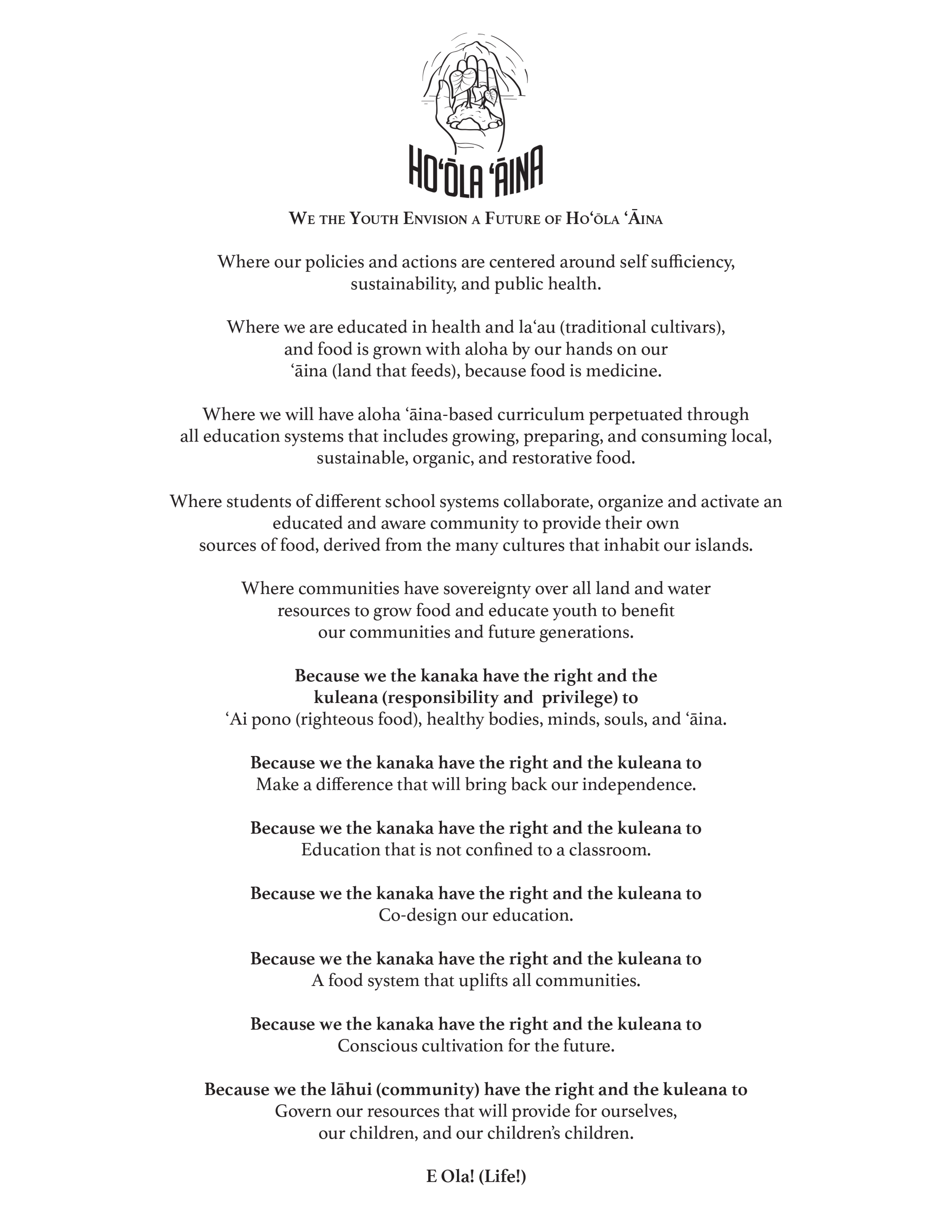“Food sovereignty is the right of peoples to healthy and culturally appropriate food produced through ecologically sound and sustainable methods, and their right to define their own food and agriculture systems. It puts the aspirations and needs of those who produce, distribute and consume food at the heart of food systems and policies rather than the demands of markets and corporations.” ”
July 2021
Mahalo to everyone who participated in this year’s YFSC! We look forward to the next one! Enjoy this gallery of (re)connect youth to the concept and practice of food sovereignty.
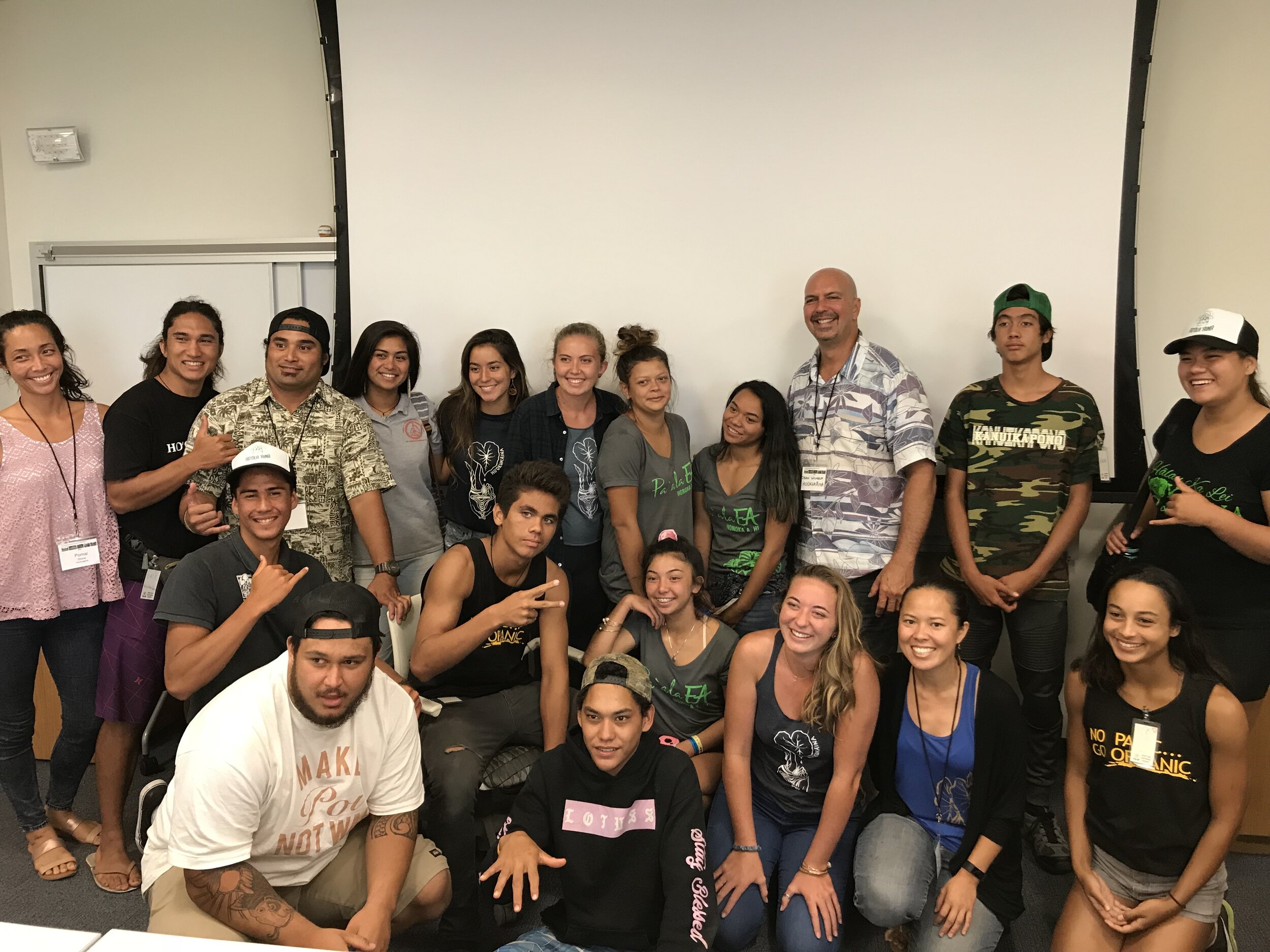
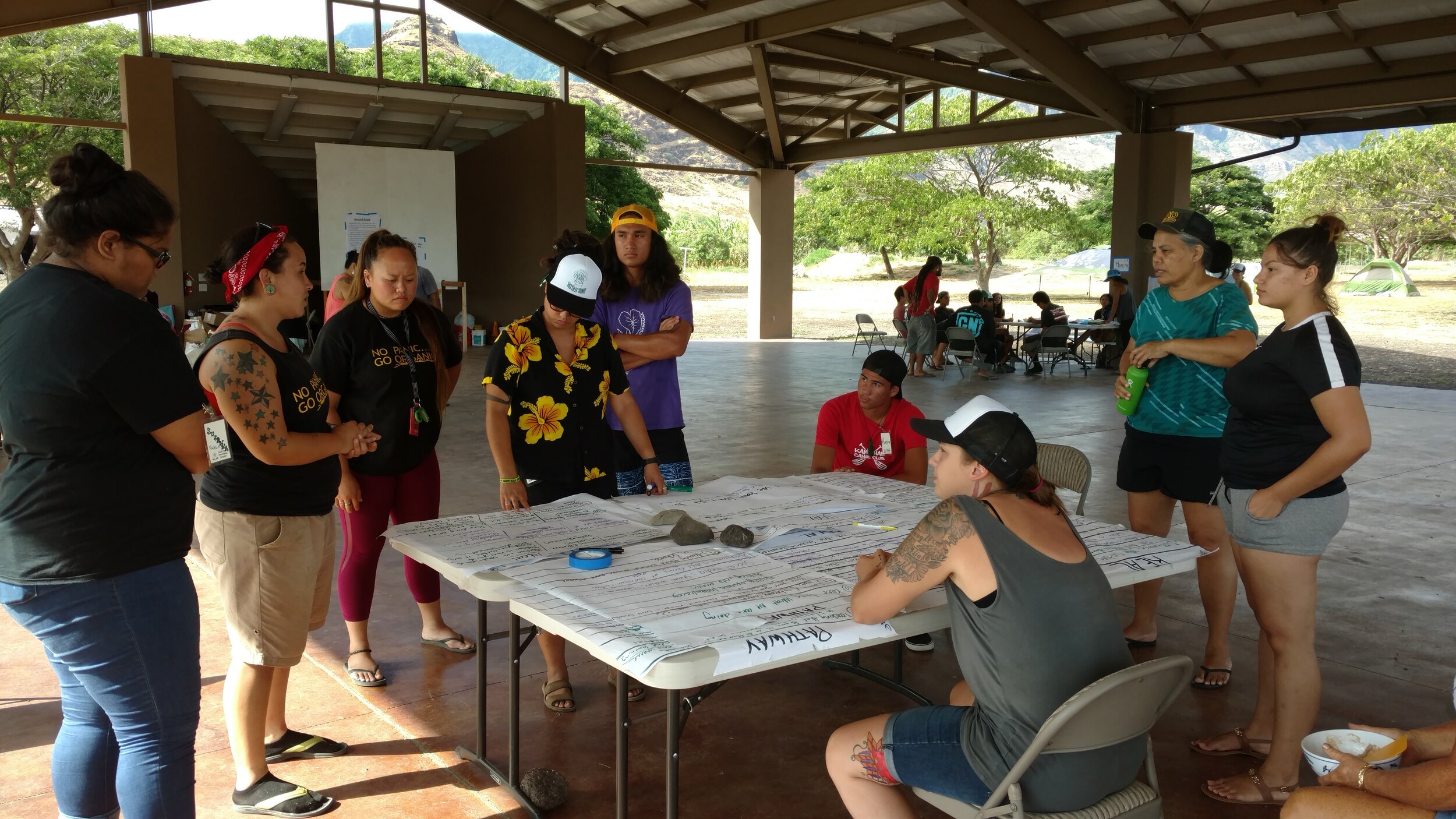
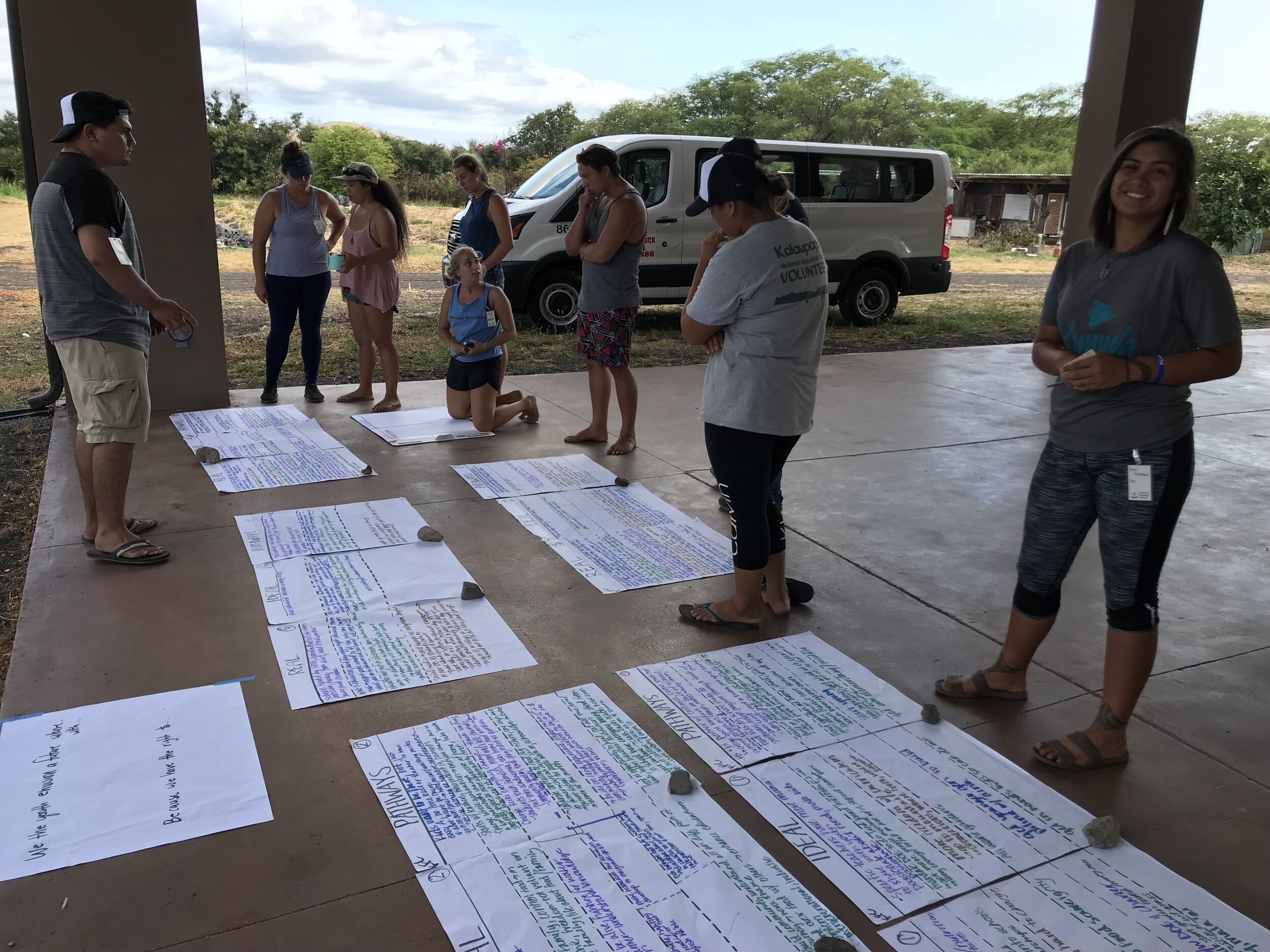

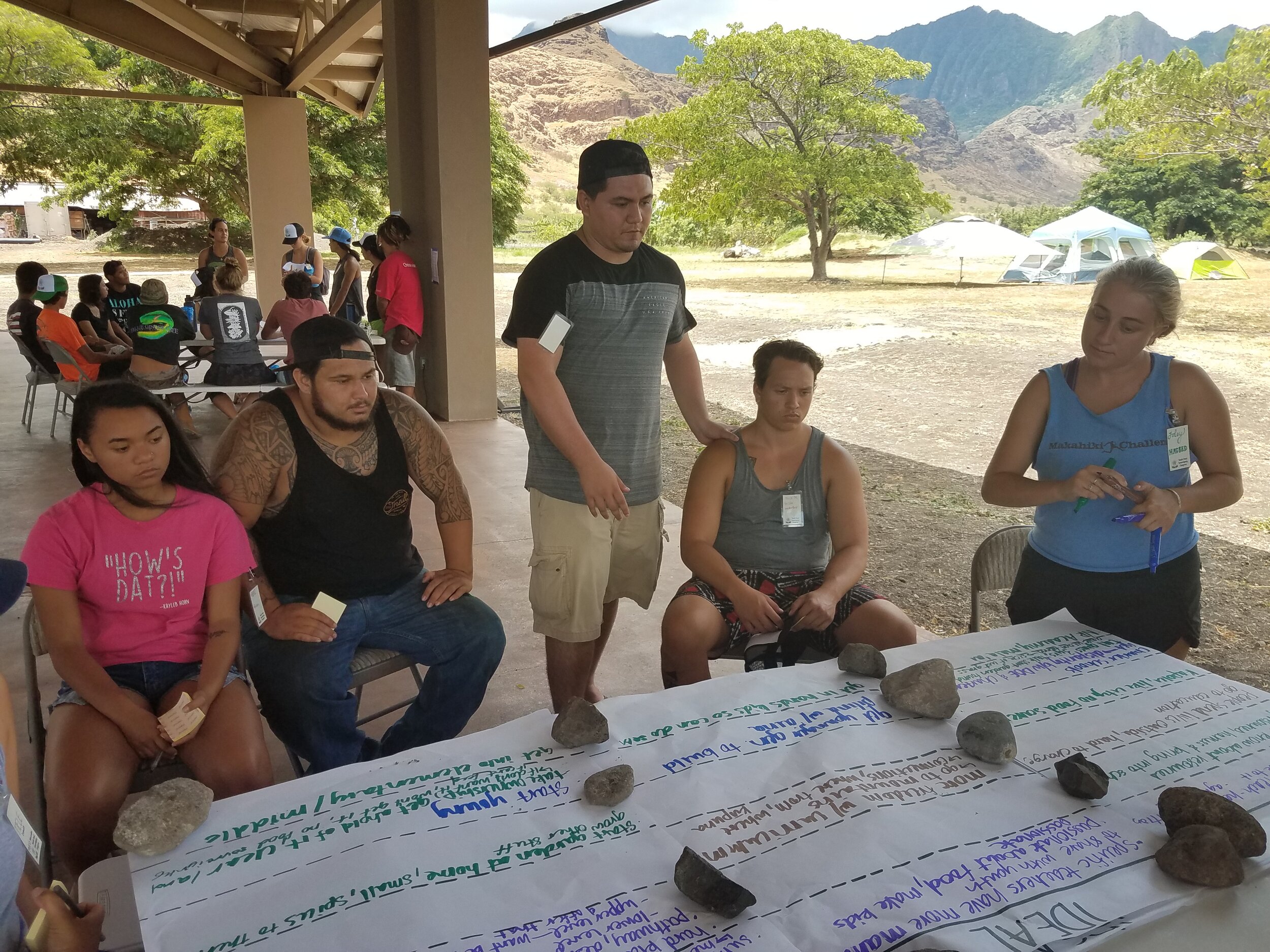
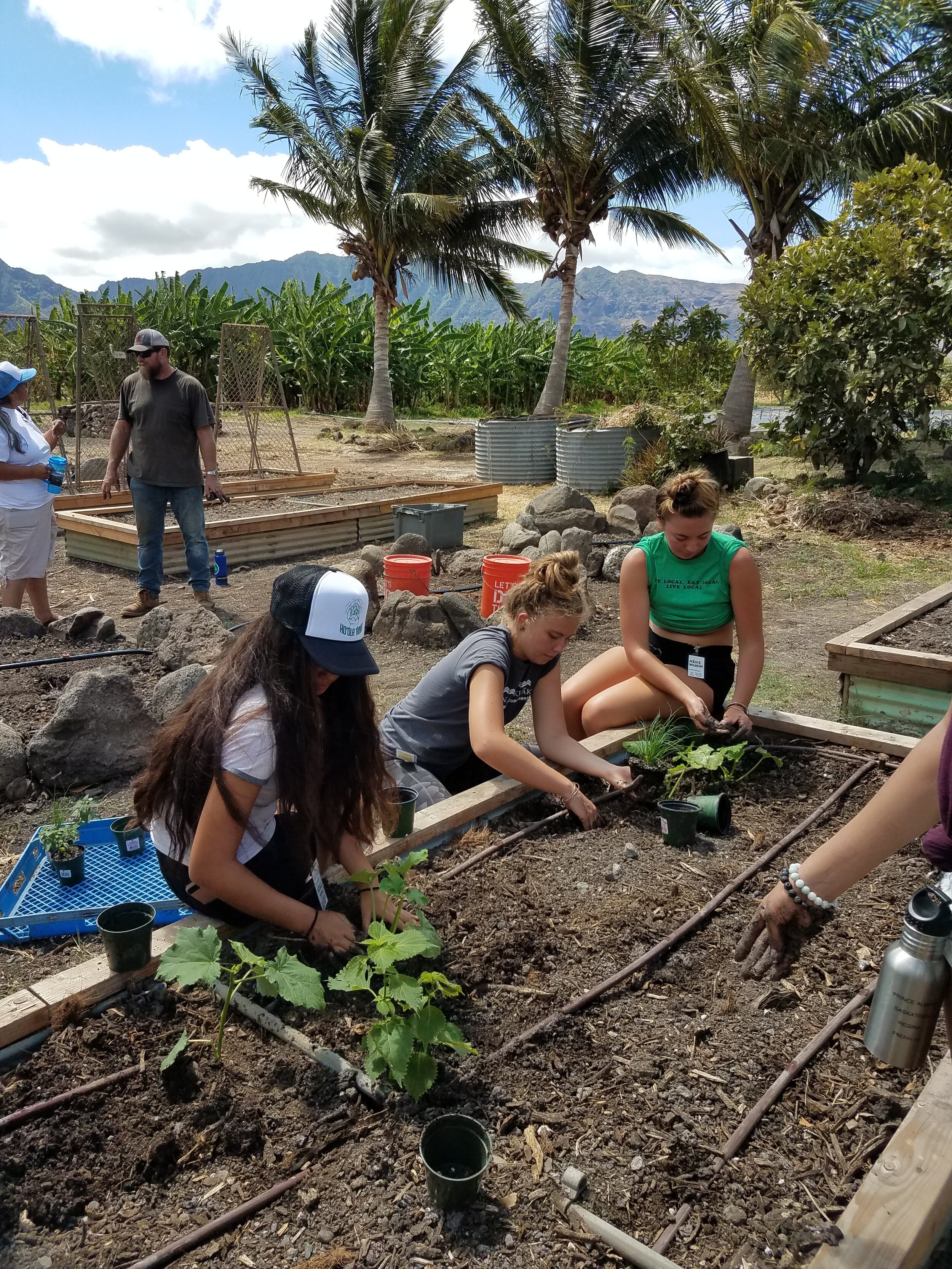
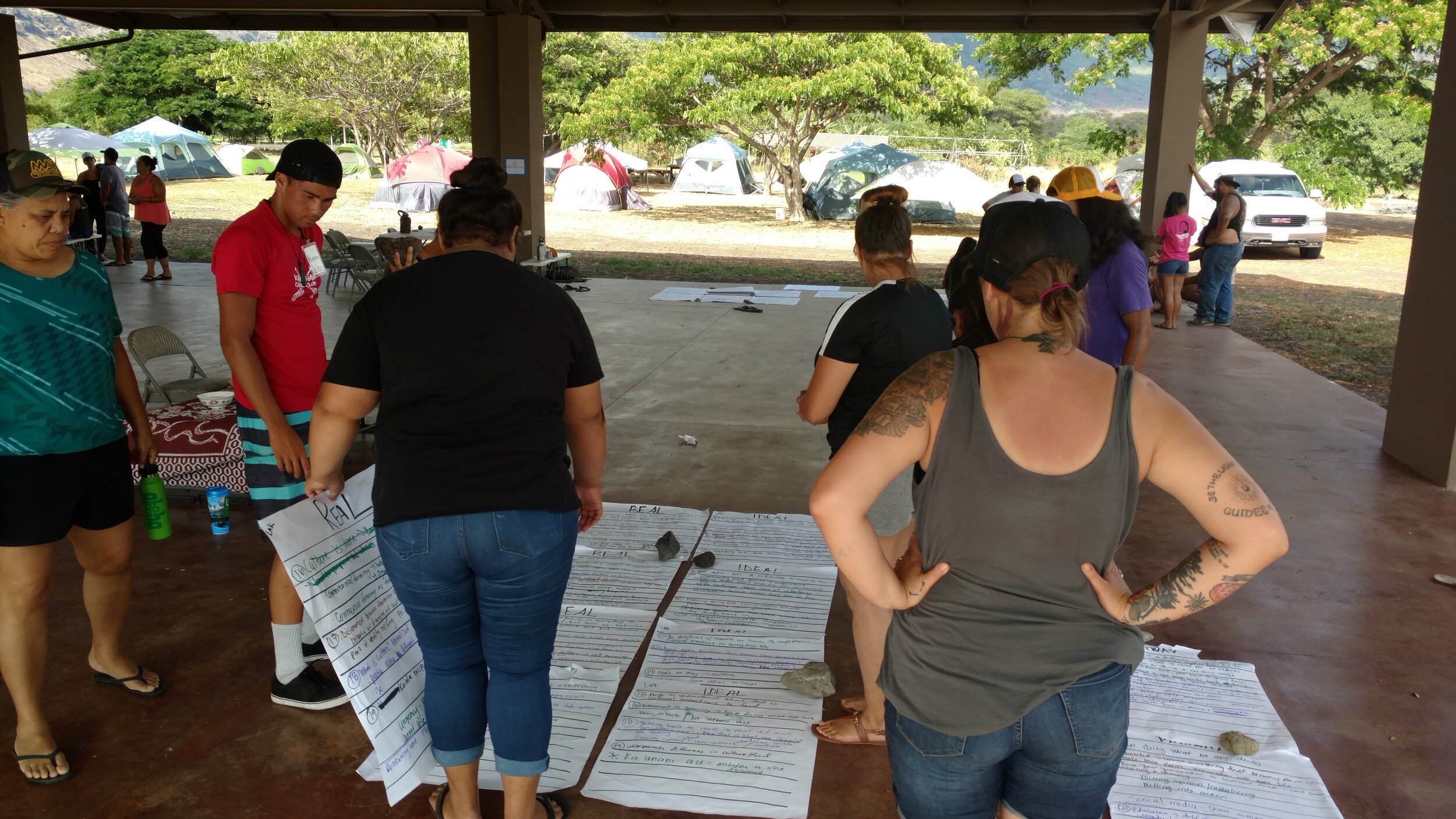
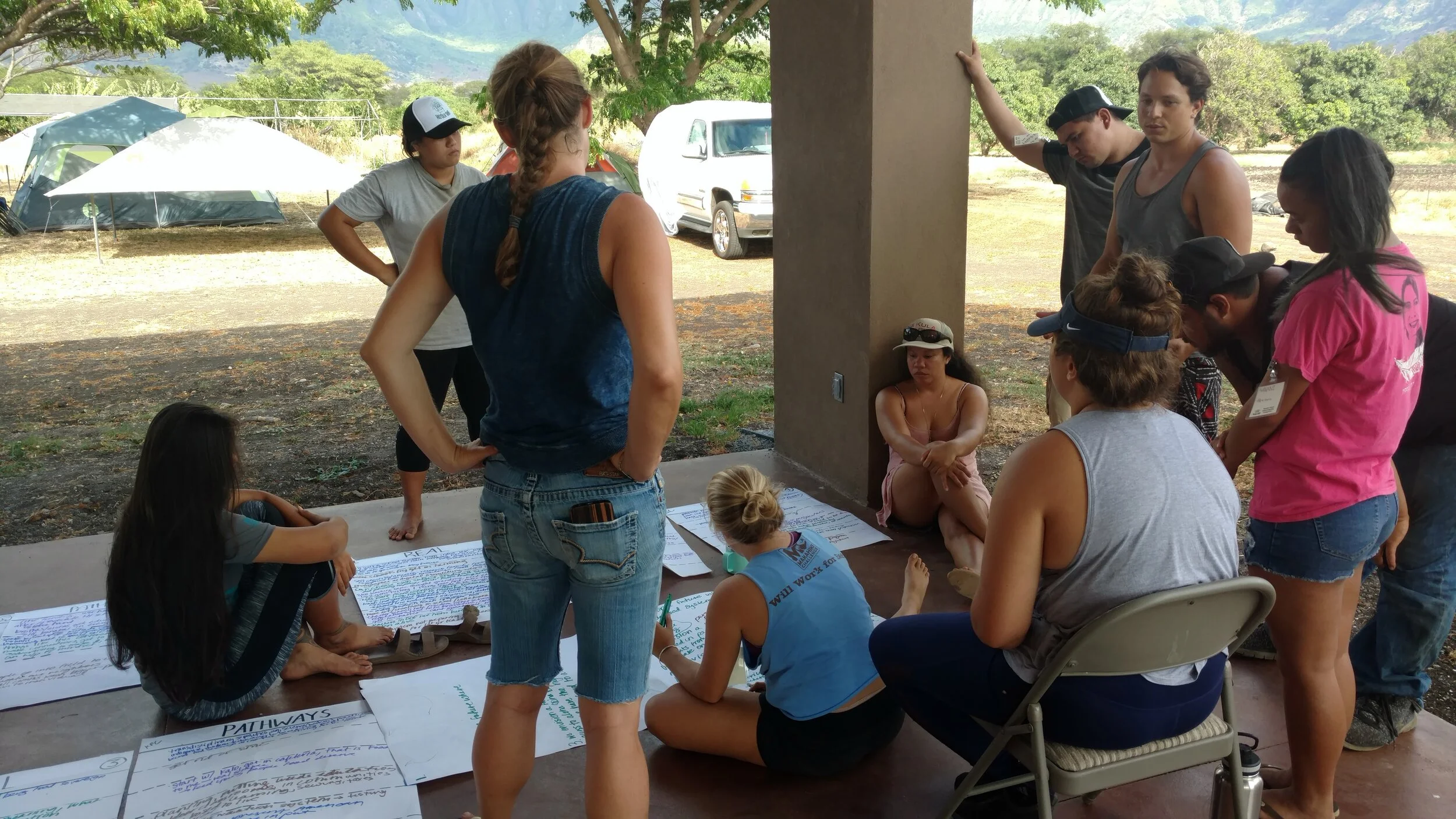
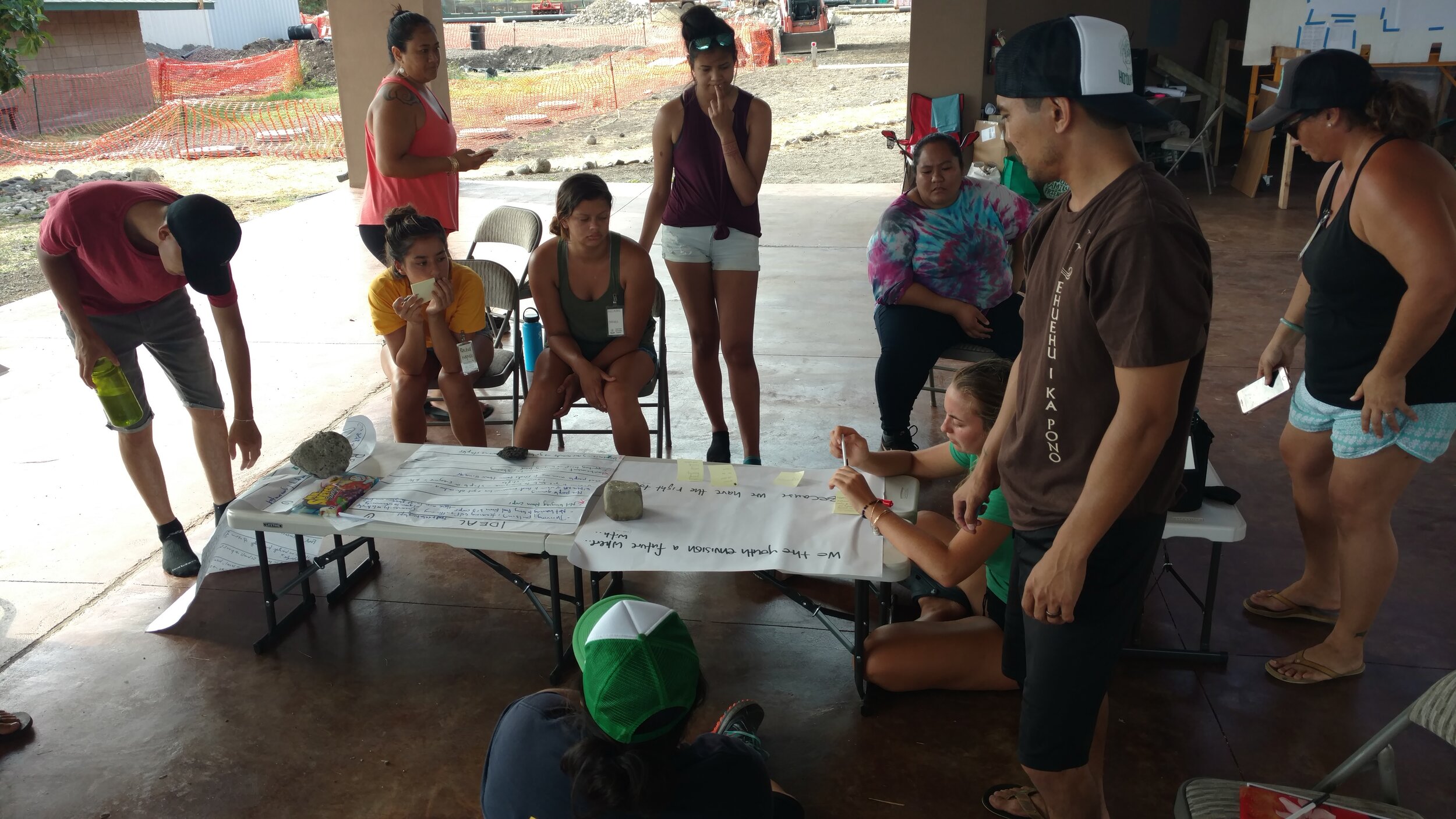
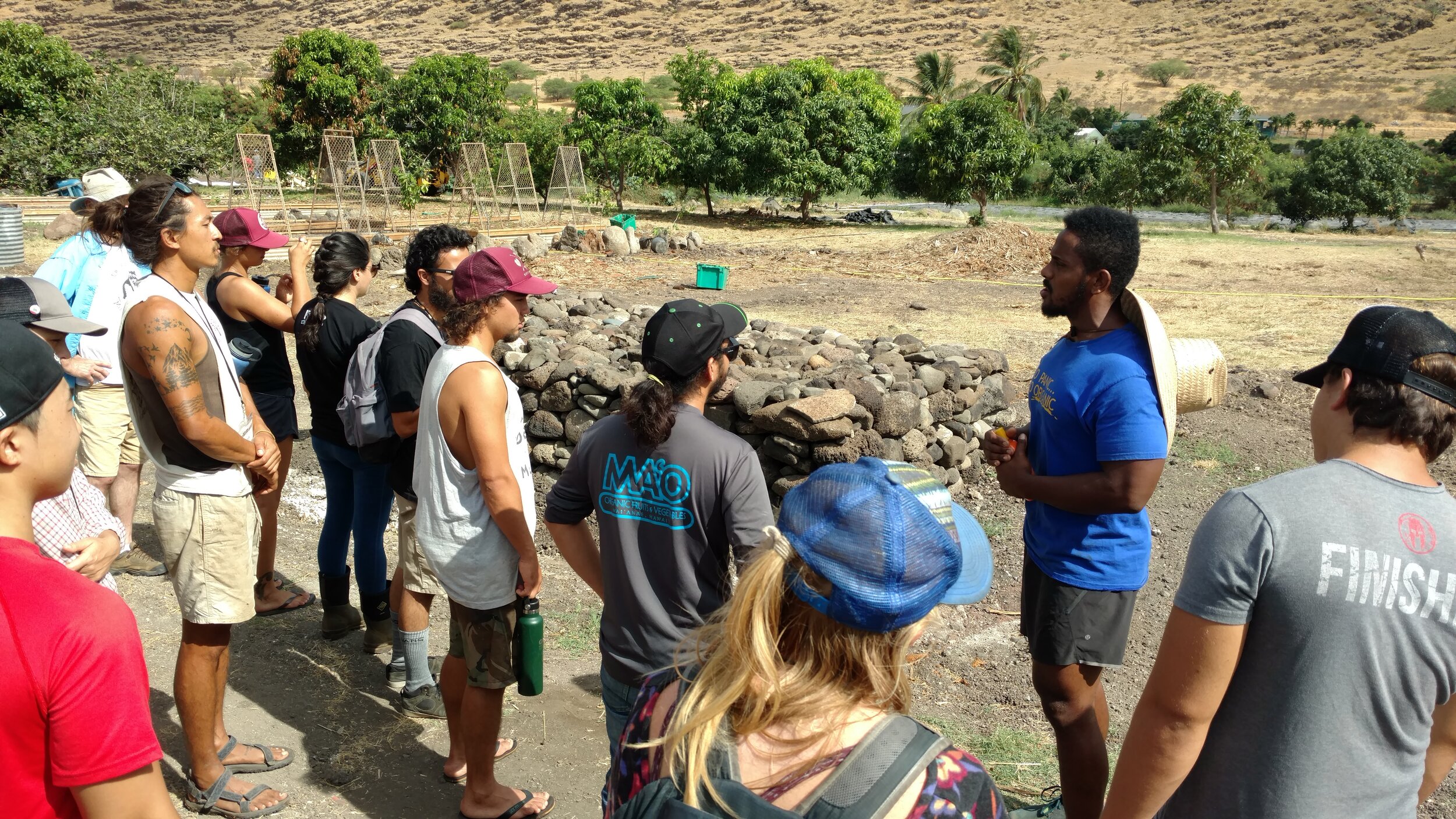
THE MOST RECENT CONVENING IN 2018…
Hosted by MAʻO Organic Farms, the 2018 Hoʻōla ʻĀina Youth Food Sovereignty Congress (YFSC) brought together ten delegations from across Hawaiʻi at the Lōkahi campsite in Waiʻanae, Hawaiʻi. The Congress was held alongside the national Sustainable Agriculture Education Association (SAEA) conference, hosted by the University of Hawaiʻi, West Oʻahu. The purpose of this gathering was to launa (meet with), mālama ʻāina (care for the land), and practice deep listening, learning, and collaboration. Those five days challenged the ʻōpio (youth) and their mākua (adults) to think critically about their own work in food systems through large group circles, individual reflection, facilitated conversations, panel discussions, mālama ʻāina, and talk story.
The combined YFSC and SAEA events culminated in the YFSC youth delegates’ delivery of a powerful food sovereignty statement (see below), which they crafted during facilitated sessions at the Congress. The space nurtured during this gathering encouraged youth participants to share their stories and ultimately express their collective vision for their food, communities, education, and future in the statement.
ROOTED SINCE 2006…
The Youth Food Sovereignty Conference (YFSC) first convened at MAʻO Organic Farms in 2006. Since then, the YFSC has gathered eight times over the past thirteen years with community organizations on Oʻahu, Kauaʻi and Hawaiʻi Island hosting different iterations. While each gathering has been unique, they have all served to bring together delegations of ʻōpio (youth) and mākua (adults) representing food, agriculture and culture oriented school projects and organizations from across the pae ʻāina (Hawaiian archipelago) to facilitate their exploration of community-based food systems in Hawaiʻi. Each convening has also engaged with members of the hosting agricultural community – including farmers, ranchers, fishery and acquaculture managers, and other food systems practitioners and educators – as hosts of huakaʻi (excursions) and participants in discussions regarding the historical foundation, current state, and future expression of agriculture in Hawaiʻi.
